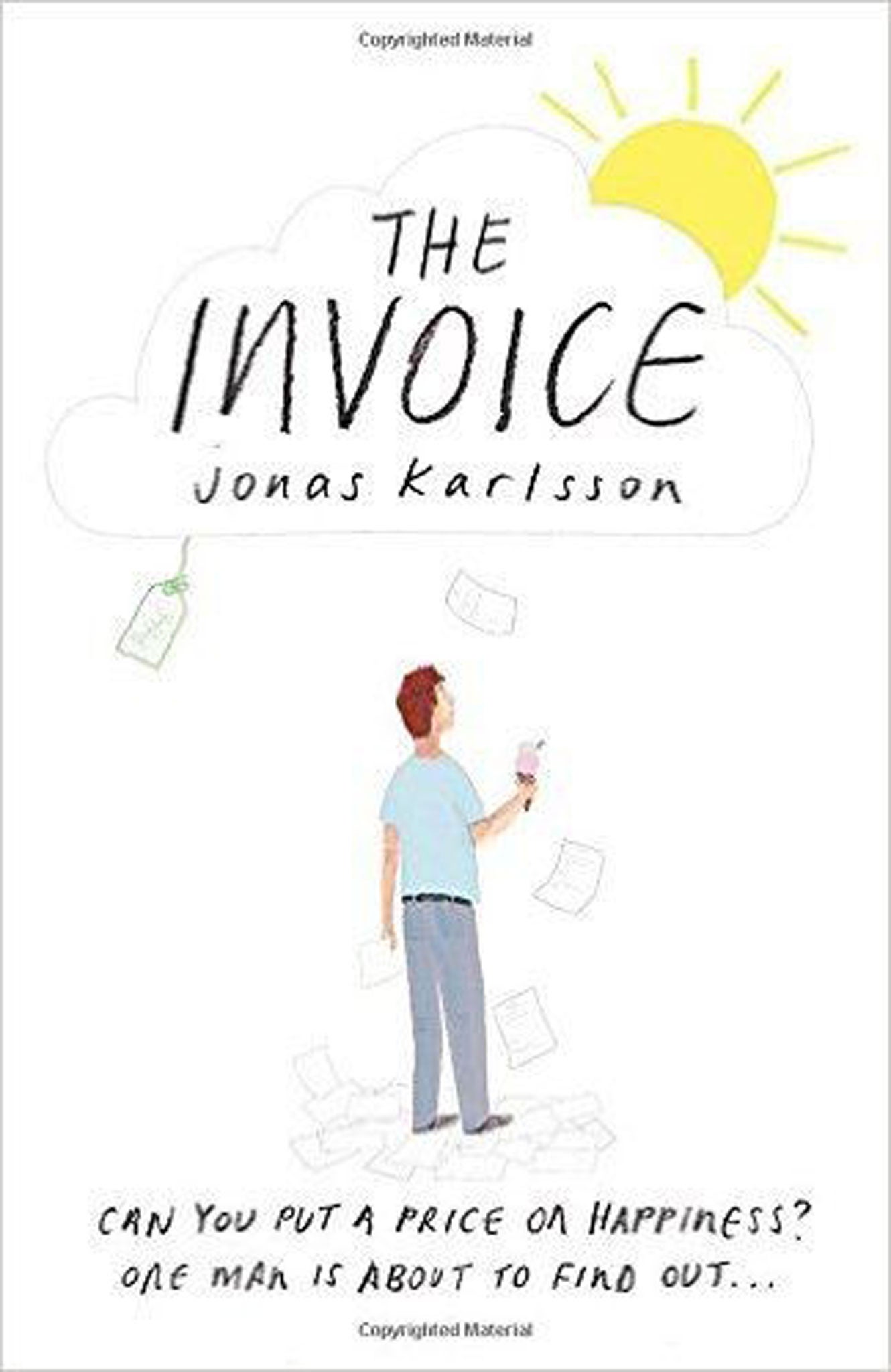The Invoice by Jonas Karlsson; trans. Neil Smith, book review
Simple pleasures aren't enough to beat the January blues

This time last year, I read The Room by Jonas Karlsson, about the drudgery of nine-to-five office life. His central character was a misfit and refusenik, and what was appealing about the book was its Kafkaesque murkiness around corporate power and its resistance to the soul-sapping monotony of the everyday.
The Invoice comes in its wake, and in the week that "blue Monday" was supposed to have driven us to a post-happy winter nadir, this novel shines some light. Its central character is not unlike the oddball of The Room – he works as a part-time shop assistant in "Jugge's Flicks" and has barely a thing of value in his little apartment. By any calculation, he is closer to the bottom rung of life's achievers than the top.
But when the government introduces a "happiness tax" after calculating each citizen's daily moments of joy, our antihero comes out tops. Every silver cloud has a dark lining, however, and for this protagonist, it means having to pay a hefty tax on personal happiness that is way beyond his economic means.
The book's philosophical interrogation of happiness is thus framed around the protagonist's dilemma: is it our accomplishments that make us happy or can we be happy with whatever we manage to accomplish? He finds, to his surprise, that he doesn't need a lot to satisfy him. He feels intense pleasures in simple acts and finds a way to see the silver lining, even in what from the outside appears to be a small and lonely life.
His inner richness is revealed to himself through a series of conversations that become ever longer and more ardent with a woman from a call-in centre that is assessing his happiness. Beyond the gentle comedy on the pedantic bureaucracy of this new government initiative – psychological questionnaires, face-to-face interviews and a host of other measurements recognisable to us – there is the bloom of romance between this seemingly "bottom-rung" pair that feels very contemporary.
There is gentle comedy, too, in his discovery of his own capacity for joy – this story can almost be envisioned as a quirky indie film, the kind that befits an actor-writer such as the Swedish Karlsson.
The Invoice is a refreshingly odd book, told in a distinctive voice with a strong resistance to conformity at its heart. Yet, for me, Karlsson's darker antihero of The Room wins: angst and outrage seem not only sexier but a more appropriate indulgence for our January blues.
Hogarth £9.99. Order for £9.49 (free p&p) from the Independent Bookshop: 08430 600 030
Join our commenting forum
Join thought-provoking conversations, follow other Independent readers and see their replies
Comments
Bookmark popover
Removed from bookmarks